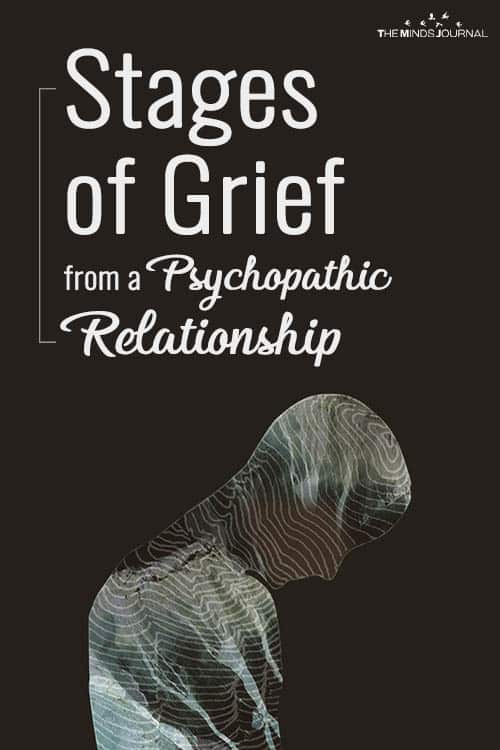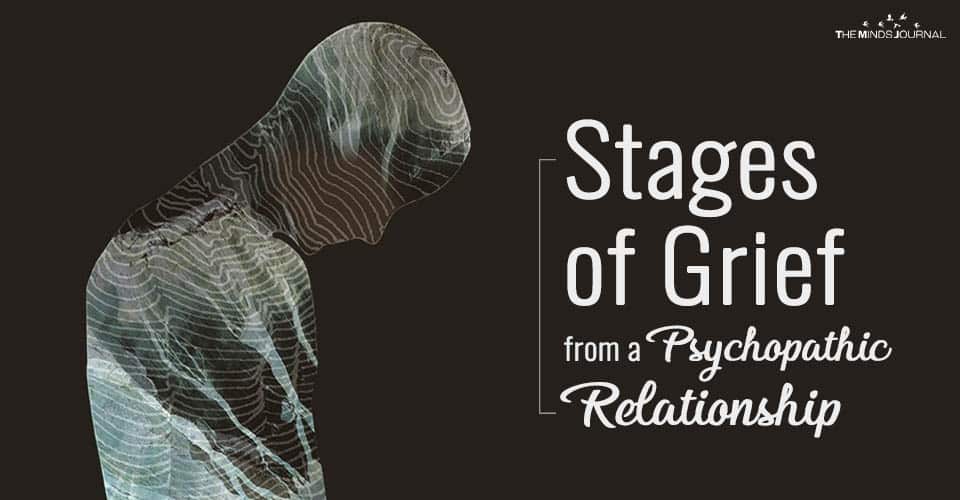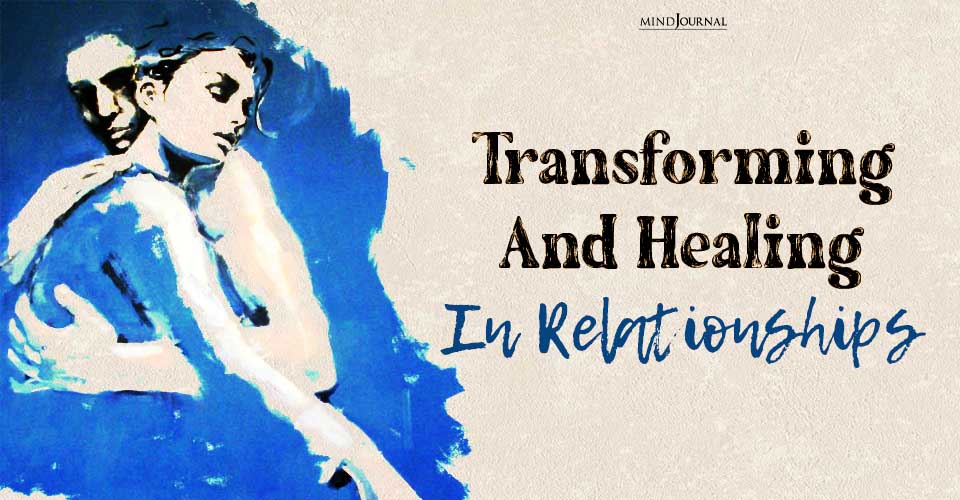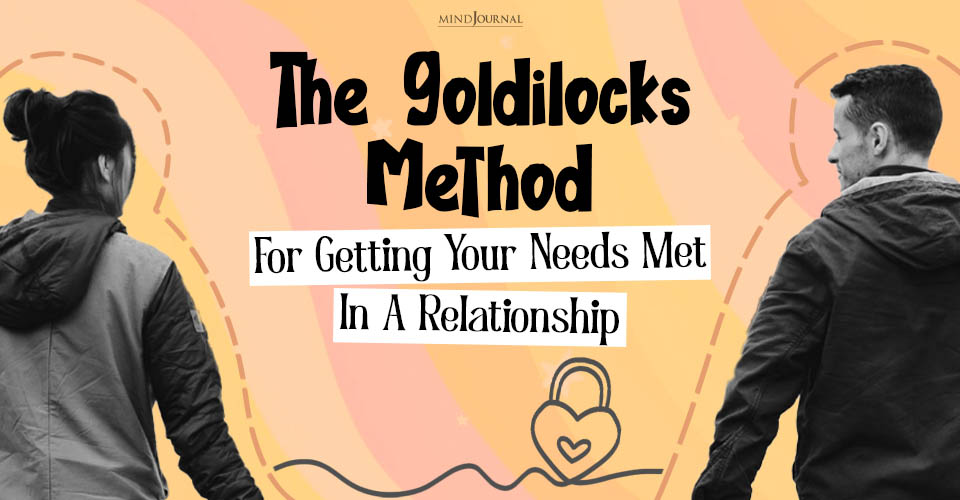Stages of grief – especially true for victims of psychopathic relationships
Did you break up with a psychopath? Feeling lost and choked up? Grieving badly?
Well, bereavement is inevitable when the relationship with the psychopath has come to an end. However, the stages of grief are different from what you experience after separation from a loving partner or death of your loved ones. Although you are out of hell, getting over that emotional roller-coaster and healing your scars is something hard – but not impossible.
Here are 8 Stages of Grief from a Psychopathic Relationship
1. Total Devastation
After the end of a relationship with the psychopath, you feel numb, worse, inferior, empty and sink into shock that it can really happen to you. It is common to keep thinking about him 24/7 and victimize yourself, which prevents you to participate in activities that excited you earlier. You are unable to deal with the agonizing situation that triggers stress, anxiety, and depression as also mentioned in the Handbook of Trait Narcissism
Watch the video to spot the difference between Narcissist, Psychopath, or Sociopath
You keep contemplating what has happened only to get back to square one. On one hand, you desperately want to reunite with him thinking it’s all your fault. That deteriorates your self-esteem and confidence so much that you no longer want to live. You begin to lose the sense of self, unable to see the brighter side of life. This stage of utter devastation leaves you mentally drained out, which also takes a toll on your health.
2. Denial
You might have suspected their behaviors and sexual infidelity several times. But, you may have lied to yourself until the fake mask of the psychopath fell off. Now to maintain your sanity, you deny anger, feelings of sorrow, and suppress your emotional pain. In an attempt to prove them that you are happy after ending the relationship – you party hard, laugh out loud, make new friends, catch up with old ones, think irrational, have mindless sex, waste money, hurt at the same time and become frustrated and aggressive.
No matter how hard you try to justify your hard mind, you experience isolation. You find no person who can understand your pain because your friends and parents were always against your psychopathic relationship, which adds to your isolation and pain. This bereavement is different from what you experience after losing your near and dear ones. You tend to lock yourself in your room and stay aloof as the sense of trust is totally crushed.
3. Learning & Self-doubt
Although your mind doesn’t feel like a prison anymore, you still have scars to heal. As time passes, you want to learn more about psychopathy, well aware of the fact that nothing can change the past. You study more about narcissism to settle thoughts or to figure out what, how, and why things went wrong. Soon you learn about characteristics and dangerous signs of psychopathic relationships and end up blaming yourself for poor judgment and unwise decisions.
If you want to quickly identify a psychopath or manipulative people, read 15 Red Flags That You Are Dealing With Them
The more you educate yourself, the more you enter into self-doubt. Then keep wondering how can “I love you change” into “I hate you” in the blink of an eye. You find flaws in your behavior that might have changed his obsession with contempt. Self-doubt is self-sabotaging because the victim takes the entire responsibility for ruining the relationship. Because you always perceived the psychopath as “perfectionist”.
4. Understanding the Psychopath
Through self-education, you tend to overcome self-doubt and stop blaming yourself. This is one of the important stages of grief. You begin to understand the psychopath, which is an important step towards healing your broken heart and recovery. You dig deeper into the psychology of the psychopath and comprehend how their mind works. Eventually, everything makes sense to you – intense passion and admiration to sudden hatred, being controlled, criticism, blame game, emotional abuse and finally break up.
Talking about emotional abuse is scary. Isn’t it? Read how to Identify Emotional Abuse before it Happens
You realize everything was a big lie and that you trusted him blindly. That each and every action was pre-planned and you have been played. The more you retrospect and introspect, you find out the reality behind all the horrifying experiences you had in the relationship with the demon. Eventually, you find all the answers that your mind was longing for you and start feeling awful and abrasive. You were never loved and it is difficult to digest the bitter truth.
5. Rage
After discovering the truth you feel more than just angry and disgusted. It boils your blood so much that you stop feeling guilty. Instead of compassion for the partner, all you have is resentment! Your mind is flooded with frustration and you want to vent out all the repressed feelings in one go. Besides feeling revengeful, you want to call and shower him with abusive words or thrash him for manipulating your mind. You want the whole world to know about narcissism and save other victims.
Want to know how abusers manipulate and traumatize their victims? Here’s the Secret Language of Narcissists
In this stage, you might imagine killing him in your mind a billion times. Anger, hate and despise makes you more obsessed with this one person. You feel free to verbalize your feelings to all your near and dear ones. This is called delayed rage! When you were in a relationship, you denied your feelings and always suppressed your emotions thinking it was your fault.
6. Depression
After identifying what has happened, your mind starts racing with mixed thoughts. You may choose to let it go because it was not your fault. But, soon you are full of anger and frustration. You begin to have a negative outlook on life.
Feeling worthless and empty, one neglects self-care, eating, grooming, working, and other activities of daily living. You avoid socialization due to lack of trust, which in turn amplifies your pain (PTSD) and disturbs your sleep cycle. You are betrayed and there is no denial or self-doubt as mentioned in the previous stages of grief. In this phase, you move deeper into depression finding no way out. It appears to you that break up is an end of the world.
A narcissist can make you feel crazy in various ways. Here are 5 Things to know
7. Healing
You start assessing your strengths and weaknesses and what led to your exploitation. Then start surrounding yourself with people and seek help from psychologists, relationship coaches, therapists or people who have gone through similar experiences. Listening to their stories helps you gain new perspectives so you hope to reach a happy end once again.
Validation from people helps you develop a healthy feeling and a positive outlook towards life. You feel calm as you express instead of suppressing your feelings, which heals your heartache. There is nothing to control you and now you have the freedom of mind. Just be yourself and see the toxicity flying from your life.
8. Self-Discovery
Once the healing begins you start discovering your potential and strength. And understand that all you did was love, which is no crime. You start valuing your virtues, which increases your self-esteem and confidence.
You gain clarity, embrace who you are and accept all your mistakes. Instead of ruminating you figure out how to make your life beautiful. You stop looking at yourself from the perspective of a narcissist. Then start engaging in self-love, which boosts your self-respect. As you prioritize parents and friends, your hatred, anger and distress change to compassion and love again. Out of all stages of grief, self-discovery is the beautiful one. The new version of yourself is fully-ready to explore and enjoy new possibilities.
Could you relate yourself to these stages of grief?
How did you move on in life after the psychopathic relationship? Share your thoughts by commenting below.










Leave a Reply